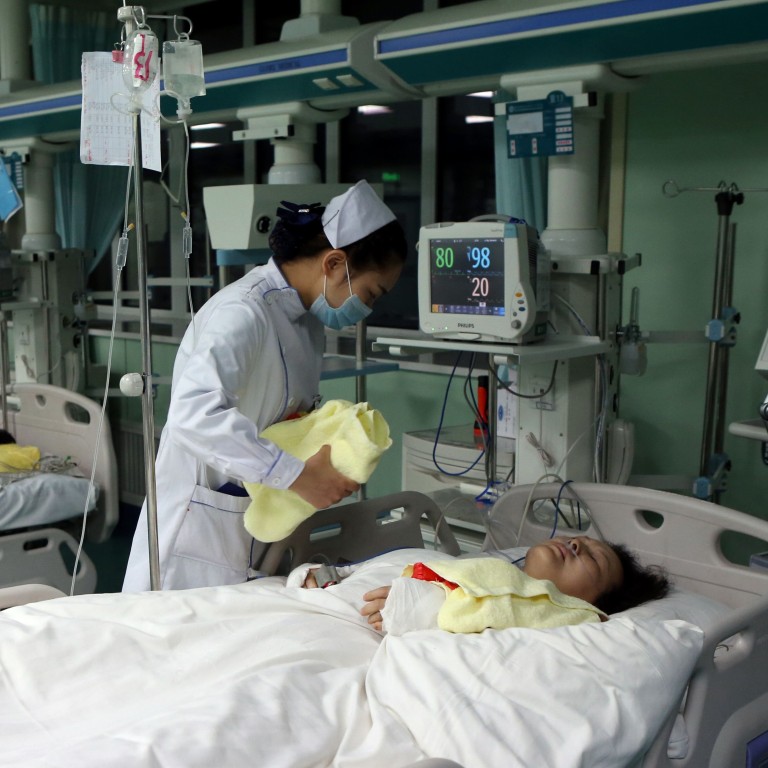
Chinese hospitals may have to charge patients more due to underfunding of government's reform plan
Patients may have to pay more as facilities struggle to finance services after drop in revenue caused by ban on drug mark ups
The central government is not giving enough money to public hospitals to help with reforms that have cut their revenue significantly, experts say.
The Ministry of Finance said this month it had allocated 11.1billion yuan (HK$13.5 billion) this year to finance the reform of public hospitals.
In rural areas, counties received 3 million yuan each to overhaul their public hospitals.
And under a pilot scheme involving 100 cities each district received 1 million yuan for the reforms. Of these, 66 cities that joined the scheme this year each received 20 million yuan in a one-off grant.
The finance ministry also said that the 9.8 billion yuan allocated for next year had been issued in advance to help local governments better prepare for the 2016 reform plans.
But experts said the money was not enough to support the country's thousands of public hospitals, which have experienced a big drop in revenue as government reforms bar them from marking up the price of prescription drugs.
"[The funding] is surely not enough. Now that hospitals are no longer allowed to mark up drugs, the drop in their revenue is huge, especially in bigger hospitals of higher rankings," said Hu Shanlian, a public health professor at Fudan University in Shanghai.
Public hospitals were previously allowed to mark up prescription drugs by up to 15 per cent to supplement their income.
But the practice was ended because some doctors and medical staff were abusing the system by prescribing unnecessary and expensive imported drugs just to generate extra revenue.
Drug sales account for about 40 per cent of the total revenue of public hospitals in China, according to state media reports. The reforms aim to cut that figure to 30 per cent by 2017.
"Now the economy is slowing down and entering an era of 'new normal', [government funding] is only likely to go down," said Hu.
Local governments are expected to help hospitals make up for lost income, according to the reform plans, but experts question whether they will be able to do so.
"Many local governments are already strained financially. I don't think they have extra money for hospitals," Wang Zhen, a medical reform researcher at the Chinese Academy of Social Sciences, told the financial news outlet Caixin.
Local governments are already facing pressure from debts that reached 15.5 trillion yuan at the end of last year.
Cai Jiangnan, a medical policy and management professor at China Europe International Business School in Beijing, said the shortage of funding for reforms had already become apparent in some county public hospitals.
"Public hospital reform cannot rely solely on government compensation. They need to adjust their medical service fees [to make up for lost revenue], Cai said.
He added that the central government was likely to roll out new policies this year to reform the pricing of public hospitals' medical services.
Hu at Fudan University said that as well as increasing medical service fees, hospitals also needed to cut waste and operate more efficiently.
"This is not an easy task. If things don't turn out well, hospitals may find ways to charge patients more money, which would add to the burden on patients and run counter to the purpose of the reforms," he said.

